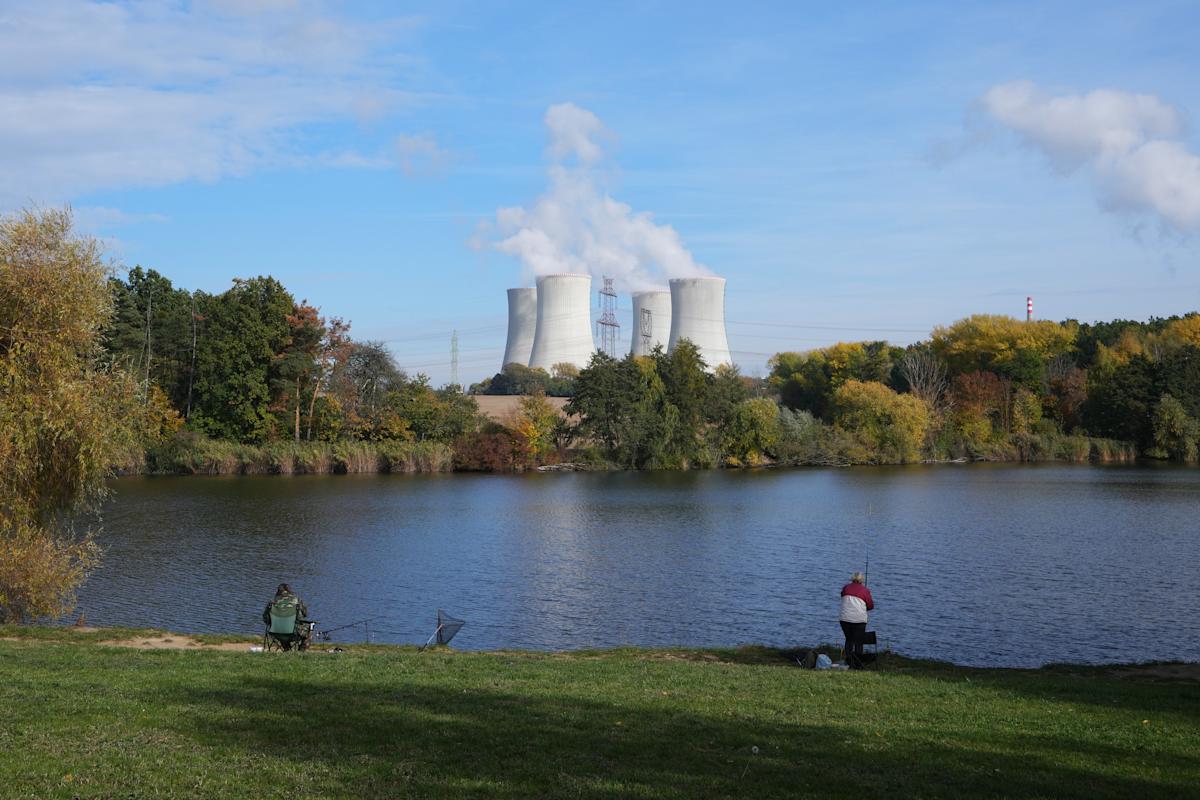Czech Republic plans $19 billion nuclear expansion to double output and end fossil fuel reliance
DUKOVANY NUCLEAR PLANT, Czech Republic (AP) — The eight huge cooling towers of the Dukovany power plant overlook a construction site for two more reactors as the Czech Republic pushes ahead with plans to expand its reliance on nuclear energy.
Mobile drilling rigs have been extracting samples 140 meters below ground for a geological survey to make sure the site is suitable for a $19 billion project as part of the expansion that should eventually at least double the country’s nuclear output and cement its place among Europe’s most nuclear-dependent nations.
South Korea’s KHNP beat France’s EDF in a tender to construct a new plant whose two reactors will have an output of over 1,000 megawatts each. After becoming operational in the second half 2030s, they will complement Dukovany’s four 512-MW reactors that date from the 1980s.
The KHNP deal gives the Czechs an option to have two more units built at the other nuclear plant in Temelín, which currently has two 1,000-megawatt reactors.
Then, they are set to follow up with small modular nuclear reactors.
“Nuclear will generate between 50% and 60% around 2050 in the Czech Republic, or maybe slightly more,” Petr Závodský, chief executive of the Dukovany project, told The Associated Press in an interview.
The nuclear expansion is needed to help the country wean itself off fossil fuels, secure steady and reliable supplies at a reasonable price, meet low emission requirements and enable robust demand for electricity expected in the coming years to power data centers and electric cars, Závodský said.
Europe’s nuclear revival
The Czech expansion comes at a time when surging energy demand and looming deadlines by countries and companies to sharply cut carbon pollution are helping to revive interest in nuclear technology. While nuclear power does produce waste, it does not produce greenhouse gas emissions, like carbon dioxide, the main driver of climate change.
The European Union has accepted nuclear by including it in the classification system for environmentally sustainable economic activities, opening the door to financing. That has been a boost for the Czech Republic, Slovakia, Hungary and France — the continent’s nuclear leader — that have heavily relied on nuclear.
Belgium and Sweden recently scrapped plans to phase out nuclear power. Denmark and Italy are reconsidering its use, while Poland is set to join a club of 12 nuclear-friendly nations in the European Union after signing a deal with U.S.-based Westinghouse to build three nuclear units.
The EU generated 24% of nuclear electricity in 2024.



Leave a Comment
Your email address will not be published. Required fields are marked *